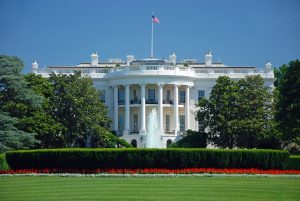
In the finance world, Special Purpose Acquisition Companies (SPACs) are proliferating like Dutch tulips. This year alone, they’ve exploded in popularity, with multitudes of celebrities, politicians, and influencers sponsoring SPACs of their own. The list includes the likes of Colin Kaepernick, Shaquille O’Neal, Alex Rodriguez and Tony Hawk. Even amidst new concerns from the SEC, which reportedly opened an inquiry into the investment risks of SPACs and issued a bulletin warning prospective investors to exercise caution investing in celebrity-sponsored SPACs, SPACs have raised staggering amounts of capital.
 Policyholder Pulse
Policyholder Pulse



 The Biden administration has hit the ground running with executive orders, regulatory and legislative priorities, and cabinet-level and other top posts being announced on a daily basis. Our public policy colleagues have been closely tracking many of the policy priorities of the new administration and
The Biden administration has hit the ground running with executive orders, regulatory and legislative priorities, and cabinet-level and other top posts being announced on a daily basis. Our public policy colleagues have been closely tracking many of the policy priorities of the new administration and  If 2020 was the year of the pandemic, 2021 appears to be shaping up to be the year of “returning to normal.” So far, most coverage disputes related to COVID-19 have been reactions to direct losses caused by the virus and related measures (i.e., relating to business interruption or event cancellation). In the upcoming months and years, however, many businesses will have to make proactive decisions on how to return to work. It is important for businesses to understand how those decisions may impact a variety of potential insurance coverages, including possible D&O coverage, as this post will discuss. Additionally, now that insurance companies have a better understanding of the types of risks involved with COVID-19, coverage terms and exclusions in policies issued after the pandemic may become drastically different.
If 2020 was the year of the pandemic, 2021 appears to be shaping up to be the year of “returning to normal.” So far, most coverage disputes related to COVID-19 have been reactions to direct losses caused by the virus and related measures (i.e., relating to business interruption or event cancellation). In the upcoming months and years, however, many businesses will have to make proactive decisions on how to return to work. It is important for businesses to understand how those decisions may impact a variety of potential insurance coverages, including possible D&O coverage, as this post will discuss. Additionally, now that insurance companies have a better understanding of the types of risks involved with COVID-19, coverage terms and exclusions in policies issued after the pandemic may become drastically different. Late in June, the U.S. Supreme Court issued a decision in
Late in June, the U.S. Supreme Court issued a decision in  Times of crisis can bring out the best in people. Unfortunately, times like this can also be an opportunity for exploitation of inexpensive, and potentially forced, labor. As America reopens its economy, it is likely that we will begin to see a surge in many industries. The resulting demand for labor, coupled with unprecedented unemployment and related desperation not only in America, but worldwide, could lead unscrupulous individuals and companies to exploit American and foreign workers. We saw this with previous disasters, such as Hurricane Katrina, where foreign laborers were
Times of crisis can bring out the best in people. Unfortunately, times like this can also be an opportunity for exploitation of inexpensive, and potentially forced, labor. As America reopens its economy, it is likely that we will begin to see a surge in many industries. The resulting demand for labor, coupled with unprecedented unemployment and related desperation not only in America, but worldwide, could lead unscrupulous individuals and companies to exploit American and foreign workers. We saw this with previous disasters, such as Hurricane Katrina, where foreign laborers were  In a
In a  When a company receives a claim or lawsuit, it is critical to provide timely notice to its insurers. But when the claim is first made, sufficient facts may not yet be known to indicate which policy will respond. Many policies also contain language that purports to shift coverage to earlier insurance policies for claims that “relate back” to earlier events. As a best practice, policyholders and their brokers often provide notice of a claim under all policies that might cover a loss, to ensure that coverage is not defeated by failure to meet any obligation to give notice. This method of first providing notice for claims to multiple insurers, and then working with insurers to determine the correct policy to respond, is a well-established practice for managing insurance claims. Once the proper policy to respond to the claim is established, exclusions in the other policies kick in to avoid double coverage.
When a company receives a claim or lawsuit, it is critical to provide timely notice to its insurers. But when the claim is first made, sufficient facts may not yet be known to indicate which policy will respond. Many policies also contain language that purports to shift coverage to earlier insurance policies for claims that “relate back” to earlier events. As a best practice, policyholders and their brokers often provide notice of a claim under all policies that might cover a loss, to ensure that coverage is not defeated by failure to meet any obligation to give notice. This method of first providing notice for claims to multiple insurers, and then working with insurers to determine the correct policy to respond, is a well-established practice for managing insurance claims. Once the proper policy to respond to the claim is established, exclusions in the other policies kick in to avoid double coverage.